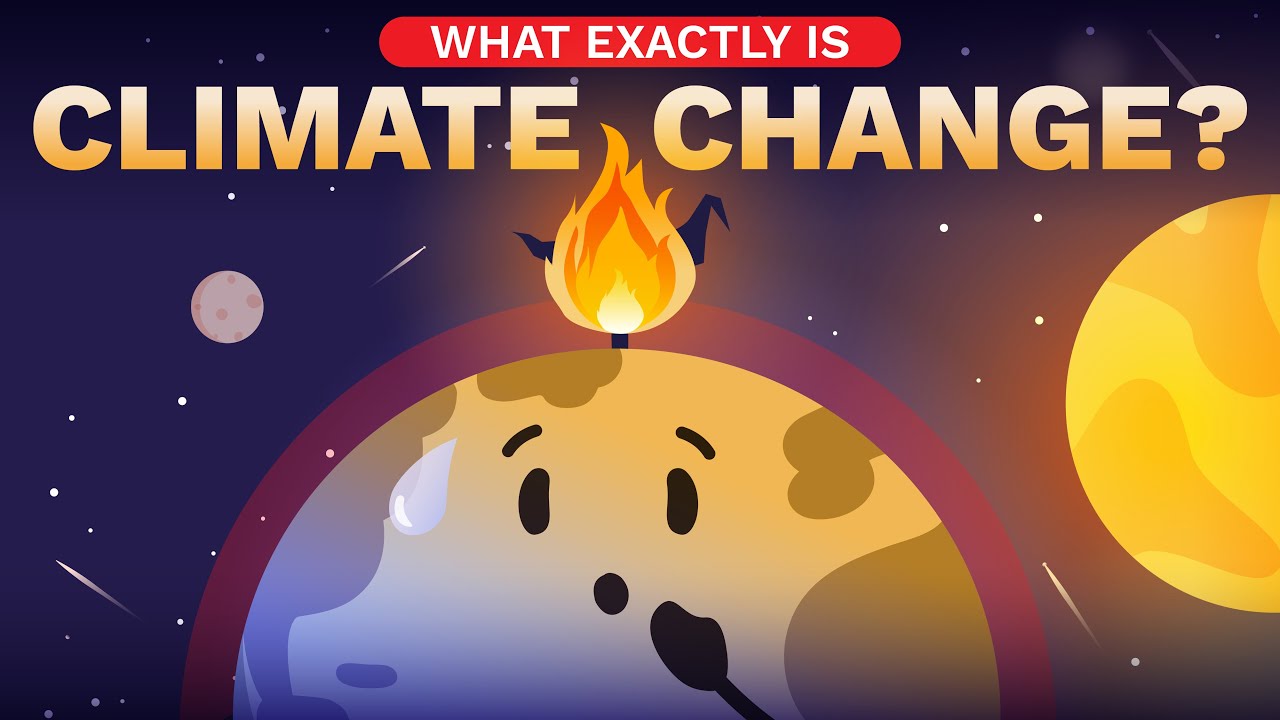PODCOP30 EP 4 CARLA LEAL
Summary
TLDRThis video script delves into the complexities of the global carbon market and its role in climate financing. It explores the importance of carbon allowances and their significant financial impact, as well as the challenges of ensuring transparency, fairness, and effective resource management. Key topics include government oversight, the interoperability of carbon markets, and the mechanisms to prevent fraud, especially in the context of international agreements like the Paris Agreement. The discussion also highlights the upcoming COP 30, where carbon market financing is expected to be a central focus.
Takeaways
- 😀 Carbon markets are an essential tool in financing the transition to a low-carbon economy by allowing the buying and selling of carbon allowances.
- 😀 The European carbon market generated 523 million allowances, leading to a volume of 44 billion euros, highlighting its financial significance.
- 😀 Carbon market funds are utilized by governments to invest in infrastructure and support countries in their transition to a low-carbon economy, especially for less wealthy nations.
- 😀 Governments play a crucial role in managing the carbon market funds, ensuring that they are directed towards appropriate investments based on each country's unique needs and challenges.
- 😀 In Europe, these funds help subsidize poorer countries that lack the financial resources to make necessary climate investments.
- 😀 Regulation and oversight of the carbon market are vital to ensure that resources are used fairly, preventing fraud and mismanagement of funds.
- 😀 There is a need for global cooperation between different carbon markets to ensure they function effectively and fairly, in line with international agreements like the Paris Agreement.
- 😀 Interoperability between different carbon markets is essential to prevent issues like double-counting of carbon credits, where the same credits might be sold multiple times across different markets.
- 😀 Article 6.4 of the Paris Agreement is a key regulation designed to ensure that carbon markets globally work together without fraud, and that countries fulfill their carbon reduction obligations.
- 😀 The global carbon market framework needs to be transparent, ensuring that countries are not penalized for fraudulent practices and that carbon reductions are accurately tracked and accounted for.
Q & A
What are carbon allowances and how do they relate to carbon markets?
-Carbon allowances are permits that allow a company or country to emit a certain amount of carbon dioxide. These allowances are traded in carbon markets, where their prices fluctuate based on supply and demand, helping to create financial incentives for reducing emissions.
How much did the European carbon market generate in terms of revenue?
-The European carbon market generated a volume of 44 billion euros from the trading of 523 million carbon allowances.
What role do carbon markets play in financing the transition to a low-carbon economy?
-Carbon markets provide a financial mechanism to support the transition to a low-carbon economy by generating revenue that governments can use to fund projects that reduce emissions and promote sustainability.
What do governments do with the revenue collected from carbon market transactions?
-Governments use the revenue from carbon markets to invest in climate-related projects, infrastructure, and subsidies, particularly in poorer countries that lack the resources for such investments.
Why is carbon market regulation a key concern in international discussions?
-Carbon market regulation is crucial to ensure that the funds are used efficiently and fairly, preventing fraud and ensuring that countries fulfill their commitments to emissions reductions.
What challenges exist in regulating global carbon markets?
-One major challenge is ensuring that carbon credits, such as those from deforestation, are not double-counted or fraudulently traded between markets, especially when different markets have different rules.
What is the role of the Paris Agreement in carbon market regulation?
-The Paris Agreement helps establish global frameworks for carbon markets, including mechanisms to ensure interoperability between different markets, preventing issues like double counting of carbon credits.
What is the importance of Article 6.4 in the Paris Agreement regarding carbon markets?
-Article 6.4 of the Paris Agreement addresses how carbon credits from different emission reduction activities (e.g., deforestation) can be used across markets without fraud or double counting, ensuring global fairness and transparency.
Who is responsible for managing carbon market funds in countries like Brazil?
-In Brazil, a committee made up of various government ministries manages the carbon market funds, with a designated authority ensuring credibility and effective oversight.
Will carbon markets be a major topic at COP 30, especially within the context of climate finance?
-Yes, carbon markets are expected to be a significant topic at COP 30, particularly in discussions about climate finance and how markets can be used to support global climate goals.
Outlines

This section is available to paid users only. Please upgrade to access this part.
Upgrade NowMindmap

This section is available to paid users only. Please upgrade to access this part.
Upgrade NowKeywords

This section is available to paid users only. Please upgrade to access this part.
Upgrade NowHighlights

This section is available to paid users only. Please upgrade to access this part.
Upgrade NowTranscripts

This section is available to paid users only. Please upgrade to access this part.
Upgrade Now5.0 / 5 (0 votes)





